Related Research Articles

George J. Fix was an American mathematician who collaborated on several seminal papers and books in the field of finite element method. In addition to his work in mathematics, Fix was a beer and homebrewing enthusiast and educator, as well as the author of several books about brewing. He died of cancer in 2002.
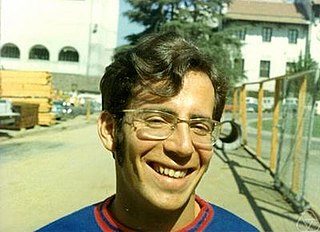
Stanley Osher is an American mathematician, known for his many contributions in shock capturing, level-set methods, and PDE-based methods in computer vision and image processing. Osher is a professor at the University of California, Los Angeles (UCLA), Director of Special Projects in the Institute for Pure and Applied Mathematics (IPAM) and member of the California NanoSystems Institute (CNSI) at UCLA.

David Arthur Eppstein is an American computer scientist and mathematician. He is a distinguished professor of computer science at the University of California, Irvine. He is known for his work in computational geometry, graph algorithms, and recreational mathematics. In 2011, he was named an ACM Fellow.
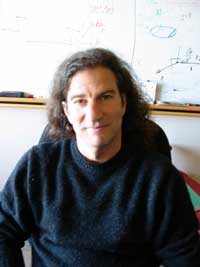
James Albert Sethian is a professor of mathematics at the University of California, Berkeley and the head of the Mathematics Group at the United States Department of Energy's Lawrence Berkeley National Laboratory.
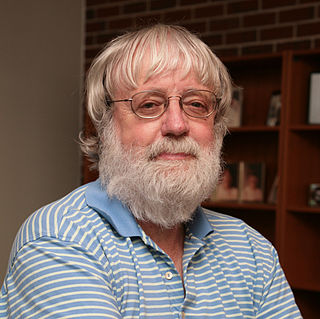
Max D. Gunzburger, Francis Eppes Distinguished Professor of Mathematics at Florida State University, is an American mathematician and computational scientist affiliated with the Florida State interdisciplinary Department of Scientific Computing. He was the 2008 winner of the SIAM W.T. and Idalia Reid Prize in Mathematics. His seminal research contributions include flow control, finite element analysis, superconductivity and Voronoi tessellations. He has also made contributions in the areas of aerodynamics, materials, acoustics, climate change, groundwater, image processing and risk assessment.
David M. Young Jr. was an American mathematician and computer scientist who was one of the pioneers in the field of modern numerical analysis/scientific computing.
Edward W Ng was an American applied mathematician who had also held the positions of senior scientist, senior engineer and technical manager in the U.S. Space Program. He is noted for his broad variety of mathematical applications in space science and engineering. He has also contributed conscientiously in the spin-off of technology from the space program, with applications in such diverse subjects as Bose–Einstein distribution in mathematical physics, symbolic and algebraic computation, computational physics and biomedical research.

Jinchao Xu is an American-Chinese mathematician. He is currently the Verne M. Willaman Professor in the Department of Mathematics at the Pennsylvania State University, University Park. He is known for his work on multigrid methods, domain decomposition methods, finite element methods, and more recently deep neural networks.
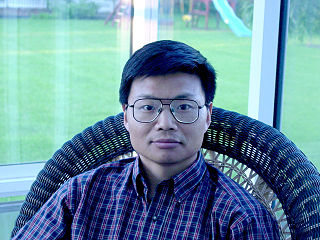
Weinan E is a Chinese mathematician. He is known for his pathbreaking work in applied mathematics and machine learning. His academic contributions include novel mathematical and computational results in stochastic differential equations; design of efficient algorithms to compute multiscale and multiphysics problems, particularly those arising in fluid dynamics and chemistry; and pioneering work on the application of deep learning techniques to scientific computing. In addition, he has worked on multiscale modeling and the study of rare events.
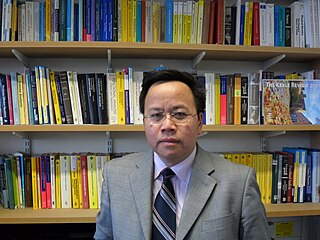
Gui-Qiang George Chen is a Chinese-born American-British mathematician. Currently, he is Statutory Professor in the Analysis of Partial Differential Equations, Director of the Oxford Centre for Nonlinear Partial Differential Equations, and Director of the EPSRC Centre for Doctoral Training in Partial Differential Equations at the Mathematical Institute, and Professorial Fellow at Keble College, located at the University of Oxford, as well as Life Member of Clare Hall, University of Cambridge.

Alan Stuart Edelman is an American mathematician and computer scientist. He is a professor of applied mathematics at the Massachusetts Institute of Technology (MIT) and a Principal Investigator at the MIT Computer Science and Artificial Intelligence Laboratory (CSAIL) where he leads a group in applied computing. In 2004, he founded a business called Interactive Supercomputing which was later acquired by Microsoft. Edelman is a fellow of American Mathematical Society (AMS), Society for Industrial and Applied Mathematics (SIAM), Institute of Electrical and Electronics Engineers (IEEE), and Association for Computing Machinery (ACM), for his contributions in numerical linear algebra, computational science, parallel computing, and random matrix theory. He is one of the cocreators of the technical programming language Julia.

Alicia Dickenstein is an Argentine mathematician known for her work on algebraic geometry, particularly toric geometry, tropical geometry, and their applications to biological systems. She is a full professor at the University of Buenos Aires, a 2019 Fellow of the American Mathematical Society, a former vice-president of the International Mathematical Union (2015–2018), and a 2015 recipient of The World Academy of Sciences prize.
Lisa J. Fauci is an American mathematician who applies computational fluid dynamics to biological processes such as sperm motility and phytoplankton dynamics. More generally, her research interests include numerical analysis, scientific computing, and mathematical biology. She is the Pendergraft Nola Lee Haynes Professor of Mathematics at Tulane University, and was president of the Society for Industrial and Applied Mathematics (2019–2020).
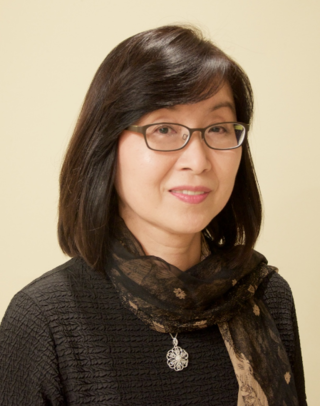
Haesun Park is a professor and chair of Computational Science and Engineering at the Georgia Institute of Technology. She is an IEEE Fellow, ACM Fellow, and Society for Industrial and Applied Mathematics Fellow. Park's main areas of research are Numerical Algorithms, Data Analysis, Visual Analytics and Parallel Computing. She has co-authored over 100 articles in peer-reviewed journals and conferences.
Peter John Olver is a British-American mathematician working in differential geometry.
Tang Tao is a Chinese mathematician currently serving as President of BNU-HKBU United International College. Tang is a member of the Chinese Academy of Sciences., Fellow of the European Academy of Sciences., Fellow of The World Academy of Sciences for the advancement of science in developing countries (TWAS). He is also a fellow of the Society for Industrial and Applied Mathematics and American Mathematical Society.
Weizhu Bao is a Chinese mathematician at the National University of Singapore (NUS). He is known for his work in applied mathematics with applications in quantum physics and chemistry and materials science, especially Bose-Einstein condensation (BEC) and highly oscillatory partial differential equations.
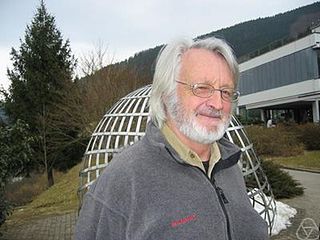
Gerhard Wanner is an Austrian mathematician.
Qing Nie is a mathematician and systems biology researcher. He is a Chancellor's Professor of Mathematics, Developmental and Cell Biology, and Biomedical Engineering at University of California, Irvine. He is also the director of the Center for Mathematical and Computational Biology and the NSF-Simons Center for Multiscale Cell Fate Research at the University.

Daniel B. Szyld is an Argentinian and American mathematician who is a professor at Temple University in Philadelphia. He has made contributions to numerical and applied linear algebra as well as matrix theory.
References
- ↑ "Qiang Du's Bio" . Retrieved 2010-07-29.
- ↑ Qiang Du at the Mathematics Genealogy Project
- ↑ SIAM announces Class of 2013 Fellows, siam.org
- ↑ 2017 Fellows, American Association for the Advancement of Science, archived from the original on 2017-12-01, retrieved 2017-11-20
- ↑ 2020 Class of the Fellows of the AMS, American Mathematical Society , retrieved 2019-11-03